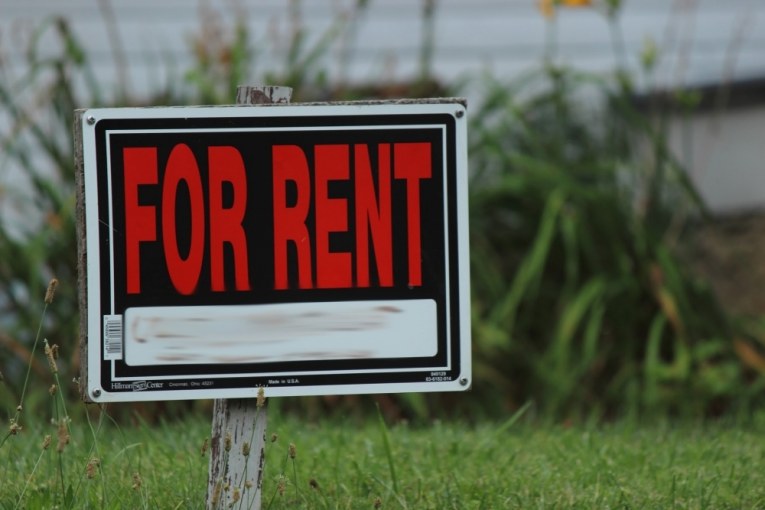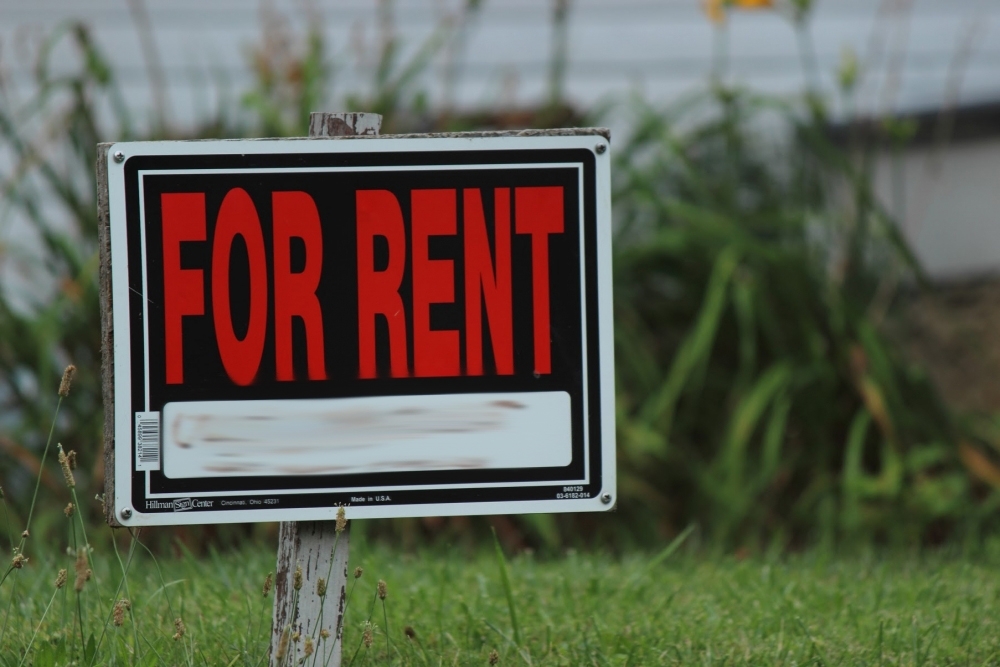

Over the weekend, the Bee had a story that highlighted the extent of the local housing crisis. Sacramento saw another huge increase in rents over January last year – a 5.3 percent increase to a $1444 average.
Of note for our Davis readers: “Rent in Davis was the costliest in California’s Central Valley, where apartments average $2,194.”
The good news is that we aren’t as bad as San Francisco and Silicon Valley yet. San Francisco rents reached $3700—second in the nation only to Manhattan. San Jose was at $2719 and Oakland was at $2935.
These numbers come on the heels of a commenter asking why Davis rental rates haven’t risen more rapidly—if we are facing the law of supply and demand. Then again, if we aren’t facing the law of supply and demand, why are Davis apartments renting for a rate that is 50 percent higher than Sacramento to begin with?
Why would we suppose the rents to be even higher than they are? Using the data that Don Shor posted a few weeks ago, Davis rents have gone up about 51 percent over the last seven years. More importantly, they have risen in absolute terms by about $650 and, if you add in the 2020 numbers, they have gone up over $800 over eight years, which gets us to about $100 per year increase.
It is true, that from 2012 to 2019, Sacramento rents increased by 60%, but they started out at a rate far lower than Davis to begin with and so, even while the Sacramento rates are rising faster, in absolute numbers, Davis rents rose more—a lot more.
Why isn’t it rising faster? That seems like a red herring. Simple math suggests that, as the base rate increases, subsequent rent increases are probably going to be a lower percentage of the base rate. That means you could have a steady $100 rental increase and still see a rate that is decreasing year over year.
The other problem of course is that the Davis rental market is fundamentally different than, say, San Francisco. In Davis, you end up with students being the primary renters. In San Francisco, you  end up with people who are making six figures, perhaps even $180,000 to $200,000, and who end up being renters.
end up with people who are making six figures, perhaps even $180,000 to $200,000, and who end up being renters.
That suggests that the only variables are not strictly number of renters versus supply, but also what those renters can afford to pay in rent. Despite that, we are still seeing fairly rapid growth in rent going from $1255 in 2012 to a number over $2000. That’s a remarkably rapid increase no matter how you calculate it.
The housing crisis is also transforming politics.
We see it in Davis. In 2000, the voters narrowly supported the growth control measure, Measure J. From 2000 to 2017 the city approved exactly one peripheral development—the Cannery—and you can argue, given it was not a Measure R vote, that that doesn’t even count. From 2002 until Sterling was approved in 2017, the city did not approve a market rate multi-family housing project.
Up until June of 2018, city voters voted down all three of the housing projects put before them—2005’s Covell Village and 2009’s Wildhorse Ranch were voted down heavily, while 2016’s Nishi was very narrowly defeated.
That’s all changed. In 2018, both Nishi (the second round) and West Davis were approved with more than 55 percent of the vote. Polling shows that affordable housing is the top issue. Other polling shows voters much more inclined now to vote for development rather than oppose it.
This marks a huge change from 2010 when Measure R was renewed without even a real challenge.
Davis is hardly alone in the transformation of politics.
Last Sunday, the San Francisco Chronicle noted the changes in Berkeley—notably “another feature on the landscape: new buildings.”
Writes the Chronicle: “After decades where no more than one or two multifamily structures might rise each year, a housing boomlet has made construction crews and wooden framing common sights. Roughly 900 apartments have been completed in the past two years, and 1,000 or so are under construction.”
They add: “To be sure, Berkeley remains a fiercely liberal city where many community activists view developers with suspicion or outright contempt. But it also has emerged as a surprising example of how older Bay Area communities are trying to respond to the region’s housing crisis — though not without resistance.”
The scale of the change dwarfs the scale of that in Davis, but the dynamics are not that different.
The Chronicle writes: “Some pressure for change comes from residents frustrated by a political culture that long has put more value on the complaints of individual homeowners than the larger benefits that new housing can bring. Nor has the arrival of bigger buildings along major streets brought the uproar that opponents predicted.”
And they add: “Whatever the factors, the evolving dynamics are on view at the City Council level — where a progressive majority that was expected to curtail new market-rate construction instead is urging it on.”
To be sure, we still see resistance in Davis, Berkeley and across the state. But the dynamics are changing. While there was still enough critical mass to defeat SB 50 this year, again, the parameters of the debate are changing. We are seeing progressives worrying about lack of affordable housing and homelessness and that is starting to transform the debate that used to focus on the need to limit growth.
“My position is that we don’t have enough market-rate housing, and we don’t have enough affordable housing,” said Jesse Arreguín, Berkeley’s mayor since 2017. “Sometimes this means thinking differently about things that once might have been controversial.”
Davis’ Mayor Brett Lee could probably get up there on Tuesday and say the same thing and many people would agree.
—David M. Greenwald reporting







“Sometimes this means thinking differently about things that once might have been controversial.”
Like not renewing Measure R? Our political leaders have no appetite to actually tackle the elephant in the room.
At the College Dems not one candidate for Supervisor came out against renewal or even for substantive change. Neither did the mayor on your podcast where you claim he was for a straight renewal. Nor have you, a fact that made the title of this piece laughable.
Why is the only litmus test Measure R rather than the 55 to 60 percent of the people who voted to support two projects last year?
Two words: puppies & babies.
The answer is in the question.
Why is Measure R needed to be a ‘litmus test’?
Any ballot measure, if unclear to a voter, in its details, is statistically likely to get a “NO” vote… the designers of Measure J/R knew that VERY well… pretty much any one who says Measure R/J is ‘neutral’ as to intent, and or ‘the will of the people’, is “spinning”, big time… and ought to apply for a political job where spin is needed…
I fully understand why a Poly Sci major would question why any one would question Measure J/R…
To paraphrase my favorite president, “government of the no-growthers, by the no-growthers, for the no growthers” was the intent of the framers of Measure J/R.
The “I got mine, to h%&& with others” crowd.
That said, Covell Village, and Wildhorse Ranch, as proposed, in my informed opinion, should never have been approved by the CC… too many flaws…
The real danger of Measure R (in my opinion), is that the commissions can “punt” on their recommendations… the CC can “punt” on their decisions, and point to Measure R for any failures, one way or the other… failure to stop/failure to move ahead.
Measure R is an unneeded ‘remedy’ for poor decisions (and, actually, ‘enables’ them)… it has become a ‘crutch’ and using a crutch too long does not help for long-term health… there are other remedies…
And Measure R is an impediment to good decisions…
And, to informed, reasoned, and fair, public process… like it or not, voters are not always (perhaps half?) informed, use reason/judgement, and/or fair…
Yes I am one who believes that Measure R should just sunset… and no, am not pro-development nor anti-development… I am heavily pro-[informed, reasonable, fair] land-use decisions.
Measure R does not support my values…
“ I fully understand why a Poly Sci major would question why any one would question Measure J/R…”
Strangely I don’t think you do understand… Moreover, not sure why you have now several times in the last week brought up my major from nearly 30 years ago.
Why should the Supervisors be opining on Measure R? This is a City, not County, issue, and is outside the County’s wheelhouse. The candidates can have their personal opinions on Measure R, but it should have no bearing on whether they are Supervisor.
Um . . . very dismissive statement . . . actually still controversial . . . let me translate: “Developments that might have been blocked in the past by local politics we might be able to get through now because liberals are no longer all anti-developer, indeed because of the price of rents, and the politics of so-called homelessness, the progressive, younger liberals support developers/development, and building is possible in places once though untouchable”.
To illustrate this, the University at Berkeley and some on the Berkeley Council are now proposing to develop people’s park, using ‘puppies and children and old people (oh my!)’ tactics a la Measure R tactics. People’s park has long been a sacred symbol of Berkeley politics for its history to those that were the young people fifty years ago — losing it is losing that history and what it meant. The tactic is brilliant, yet sinister: the old hippies are dying off, replaced by in sheer percentages by young progressives; the concerns in students are housing; the concerns in lefties is so-called homeless. Build a giant complex for the homeless, a giant highrise for student housing, and leave a token patch of open space with a plaque commemorating the history.
That is what is about to happen to People’s Park.
To be fair, Alan…
You might have shared the context of what went on before, and during, the establishment of ‘Peoples Park’… it is not without reasonable scrutiny… not all puppies, rainbows, unicorns, etc.
Actually, it was part extortive, “protesting for the sake of protesting”, but parsed as puppies, rainbows, unicorns, environment, ‘anti-establishment’, etc.
But yes, an icon, memory, for those who were aware in that time… but, things change… for better, or worse… part of our ‘social climate’…
WM, I am not anti-growth, and I am a great believer in preservation of history and city character, everywhere. Could this be more clear than in the words of Chrissie Hynde:
Of course now, even the parking spaces are going away – under the theory that they aren’t needed anymore because a high percentage of people in the new housing will not have cars.
Sure, People’s Park history isn’t perfect – but it was a very real park of the history of Berkeley and it means something and is a symbol of that meaning as an open space. Similarly, when the FBI surveillance files on Martin Luther King were released, they exposed great character flaws in MLK the man. Should the holiday be degraded or taken away with these revelations? Of course not, because as an imperfect human, MLK represents a perfect symbol for his leadership and the changes in society from that era.
This tearing down is now occurring with the many flaws of Ghandi as a person. I was asked this year not to use Ghandi as a historic symbol of nonviolence for Whole Earth Festival workshops, even though he is often the first word uttered when you ask. Will MLK be next – attacked from the progressives and the conservatives? Will People’s Park be next? Will half of Central Park in Davis be next – housing for students and the so-called homeless, because times have changed, needs have changed? A few years ago I would have said ‘impossible’. In a few more years of skyrocketin rents and addictions, not so sure.
The point is, I remember as a child when the hippie-boomers were the young rebels against the establishment and the old people. What they ‘did’, right or wrong or good or bad – is their legacy and their history and the symbols of that should not be forgotten or destroyed in the name of ‘change’, ‘things are different’. There will be People’s Parks that mean something just as prominent for the youth of today. Respecting the symbols of the past is respecting that the ‘old & outdated’ of today is YOU, youth, tomorrow. While youth often rail against the evils of America, part of the flawed culture they fail to realize they are themselves caught up in is a cultural lack of respect for experience and wisdom, the baby thrown out with the very real dirty bathwater of outdated ideas, and lack of understanding of the drivers behind youth culture.
Chrissie was railing against the developer-government industrial complex. Today, progressives are in bed with both, creating a developer-government-progressive industrial complex that will stack-‘n-pack on anything, even an iconic symbol of a generation past. Will the symbols of today’s progressive movement be lost to the future backhoe of a developer half-a-century hence?
The children of the 60s were young and were eager to put their elders in the dustbin of history. It is only poetic justice that now they face the same fate they tried to inflict on others.
Well, that’s another way to look at it. Extrapolating that out, 50 years hence current progressives would thus face the same karmic demise, forced to live in the world they created.
That’s the way of the world. Future generations don’t care about you or your struggles. You can hope that they will, but you don’t have a right to demand it.
“As is the generation of leaves, so is that of humanity.
The wind scatters the leaves on the ground, but the live timber
burgeons with leaves again in the season of spring returning.
So one generation of men will grow while another
dies.”
Nice poem, sort of . . . the point is with all the complaints US youth have about the elders (and ironically supporting the eldest of them all for POTUS), they fail to see lack of respect for elders is, in itself, a US cultural system they are a part of, not shared in many other cultures. Not demanding, rather, exposing hypocrisy wherever.
To augment Alan’s post, (2:03 P)…
https://en.wikipedia.org/wiki/People's_Park_(Berkeley)
I think the combination of accounts suffices… (and I thank Alan for his 2:03 post… I share similar sentiments/perspectives)
Key to the topic is that housing, social, sentiment ‘climates’ change, as in the rest of the natural world. Society can deny it, resist it, adapt to it, accept it, or embrace it…
Available, and affordable, housing needs are real (there may be some ‘deniers’)… trade-offs as to land-use for a particular piece of land, aesthetics/sensibilities, costs (public and/or private), etc., are inevitable.
In each choice that is made. One way or another. No magic wands.
Having read Seth Rosenfeld’s excellent book on the student movement and the FBI and seen what the People’s Park looks like at this point and recognizing the severity of the housing crisis, I’m not that sympathetic to the plight of a park overrun by drugs and homeless people today.
Bill – just because I don’t favor incarceration doesn’t mean leaving a blighted Park is ideal
Ah, yes, Mr. Greenwald, using the developer’s favorite, the “blight” word. Also known as benign neglect, a favorite of land owners who wish to develop: let it get run down and look like sh*t, so people demand it be developed. Sound familiar? People’s Park in the late 60’s, or the Aggie Hotel in Davis in the 90’s. The true numbers of examples is endless, because it’s a tactic.
But today, the student left-progressive are on the side of the University, developers, conservative pro-building councilmembers and Mr. Greenwald. The irony is ironic.
The park’s remaining defenders today are taking it from both ends, and a third end: end of life. Those who do not blah history are doomed to blah.
Sorry to go technical, Alan…
The land called “People’s Park”, was actually owned (arguably) by ‘the people’… UC land… “Aggie Hotel”, is, historically, better known as “Terminal Hotel”, as I recall… https://localwiki.org/davis/Terminal_Hotel. It was privately owned… not publicly.
The structure was questionable, due to modern codes (it was unsafe for habitation [fire, potential earthquake, etc.])… the ‘occupants’ (non-business, which was on the first floor) tended to be ‘druggies’, and/or semi-homeless… the Chens had a great project, in redeveloping it, preserved one wall… the project is still thriving…
There are some who believe ALL property is ‘publicly owned’ and want to have a definitive say in how that property is used… EXCEPT their own, of course… I am not one of those… property actually owned by a public entity is a different matter… witness the discussion re: the PW Corp Yard being partially re-purposed for a form of housing… but that topic is too complex for this thread… IMSHO…
In the early ’80’s I lived about two blocks from People’s Park. At the time it was a place best avoided during the day, let alone at night. While I was there the neighbors and students that I knew wanted the property redeveloped, even those who were present when the tanks had rolled down Telegraph. It was the ‘professional protesters’ with little or no connection to the University (or the neighborhood) who would come out of the woodwork to raise a ruckus anytime change was suggested. The University ‘hating’ City Council would of course ‘eat this up’ and add their voices to the effort to stymie progress. Decades later, no real change.
True.
That hits a little close to home, actually it hits home, as I lived there in the 1980’s. Also not factually correct. There were two residential units with two bedrooms each, both on the first floor. The second floor was abandoned for quite some time and really allowed to ‘go to sh*t’. Druggies? Well, we drank beer and smoked pot like many college students . . . you decide 😉
I can tell you a City employee who was directly involved (and will remain nameless, because I can’t remember their name) had a very different view of the project.
I have no idea if it is really ‘thriving’ as I don’t have access to the books . . . do you? But also factually incorrect . . . the Chen’s did not preserve one wall. That was our (those seeking historic preservation) proposal — to save at least the west facade and design the new building around that.
I believe that there is great value in preserving many historic structures. Davis has done little for this — Woodland much more. It was precisely because Davis has saved so little that it was important to fight for the west facade of the Aggie Hotel.
It’s also possible you, like many of us, hang out with people who share our belief system.
I am no fan of the ‘professional protestor’, and possibly the rent-a-mob was indeed present, but it just isn’t true that residents who lived there did not care deeply about preserving that park. A close friend of mine lived in one of the residences originally torn down on the site. To this day him and his wife work on preservation of Berkeley’s past (today concentrating on creeks).
Also, I have read up a bit on Dave Nadel, founder of the Askanaz, because I first met him just a couple of hours before he was murdered a few tens of feet away from me at his club. He and many other residents were staunch, active supporters of People’s Park and cared deeply, and could hardly be labeled as having no connection to Berkeley or the neighborhood.
I’m not saying you didn’t meet people who wanted it redeveloped when you were there – but my anecdotal is as good as your anecdotal, and neither being stated in isolation paints the whole picture of the People’s Park controversy over the decades.
While People’s Park was a good concept in people’s minds, its reality has never been close to that ideal. When I arrived for school 10 years after the park had been established, it was already a squalid center in which few people were safe. It should have been developed long ago. It’s become much more a symbol of the failures of that movement than the ideals. We have other better symbols to point to.
The article below arrived at a different conclusion:
” . . . midtown Sacramento’s average rate of $2,280 and $2,208 in central Davis.
https://www.msn.com/en-us/money/realestate/5-things-to-know-about-sacramentos-housing-rental-market/ar-BBZF3Iz?ocid=spartandhp
It didn’t come to a different conclusion, it looked a different set of data.
Perhaps you’d better explain what data you used, vs. what data they used.
The article clearly states that average rent is higher in midtown Sacramento, than it is in central Davis. This contradicts your claim.
Do you dispute that?
You are headed into the weed. You can look at the first sentence of the article here and there is a link that you can follow.
Regardless, the comparison of midtown to central is kind of interesting because it shows that supply and demand are in fact drivers of this equation – Midtown is limited in supply and more desirable, hence more expensive than the rest of Sacramento.
Again, the article I posted indicates that you are factually incorrect regarding your claim (in regard to Davis having the most expensive rents in the central valley).
Stating that I’m “headed into the weed” has no meaning.
You stated that they used “different data”, so perhaps it’s up to you to explain that.
Regarding your question:
That’s actually is a good question.
https://www.investopedia.com/terms/l/law-of-supply-demand.asp
Assuming that other options are available (e.g., nearby cities, other colleges, etc.), this would indicate that prices would have room to rise more, to the point where vacancies increase.
And, as prices rise, developers come forth with more proposals (which is exactly what’s occurring).
By the way, not all students are “poor”, nor do all need to attend all 4 years at a UC. (I’m still wondering how International students, for example, are able to afford the tuition that they’re charged.)
https://www.investopedia.com/terms/l/law-of-supply-demand.asp
“ Again, the article I posted indicates that you are factually incorrect regarding your claim (in regard to Davis having the most expensive rents in the central valley).”
No because my comment referred to the city as a whole – not a subsection.
Uh, you are both technically correct… suggest moving on…
No, Ron is incorrect and should have never attacked David on this issue. David was clear that he was using jurisdictional data. And such rental data is never compared across neighborhoods in different cities unless the author clearly states at the beginning that they are making such a comparison (e.g., across zip codes.) And as David points out the comparison with midtown Sacramento only illustrates David’s broader point about constrained supply and rents.
Just skimmed through this related article, and found it interesting (and familiar-sounding):
https://sacblog.newsreview.com/2020/02/20/whos-paying-to-fix-sacs-housing-crisis/
“That is what is about to happen to People’s Park.”
Its what happened at Peace Park in Madison.
“Why is the only litmus test Measure R rather than the 55 to 60 percent of the people who voted to support two projects last year?”
Ask the College Dems why did they ask the Super candidates about J/R? They understand that they are suffering under the rent servitude of twenty years of Measures J/R even if you are in denial.
Sadly all three super candidates whiffed and let the college kids down once again.
It was strange for the College Dems to ask it since the Sups have no say over Measure R whatsoever.
You are being obtuse. County Supervisors have a lot of influence over land use policy including on the periphery of Davis. The question has a value. Denying that it does is awfully dismissive of the College Dems.
Come on, their view of Measure R is immaterial to any influence they have over land use formally.
One value is that County Supervisors are in a position to effect the way a city issue is viewed by the electorate. With R up for renewal a strong statement in opposition might have had a useful impact during the campaign.
As for the College Dems it does tell you something about what they are thinking about. What is on their radar.
The College Dems care about housing – but the Board of Sups is not going to be the vehicle that brings them that housing.
This is absurd. The only student housing proposal that was subject to Measure R was approved. (The subsequent lawsuit is based upon the EIR, not Measure R.)
How many beds have recently been approved (or will likely be approved) within the city, or on campus?
Are you suggesting that student housing “belongs” on the periphery of the city?
There’s been more than one comment suggesting that some of the College Democrats have been coordinating with development interests. (Something that the Vanguard has declined to investigate.) Who cares what they think?
The Supervisors can have a PERSONAL opinion about Measure R (as they also can about their favorite food). It has NO relevance to their job as Supervisor. If you differ you need to provide a CLEAR example of how that’s the case (and saying they have some sway with voters is NOT a valid example–that’s not in the job description.)